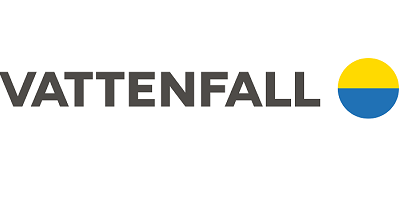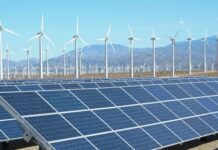Securing sufficient electricity from the UK grid is becoming more difficult for project developers. Fortunately, there is a forward-thinking and practical solution, says Tanara Motta De Castro, Business Developer at Vattenfall.
It turns out that poolside loungers are not the only thing you can reserve with a bit of forward thinking. Electricity is also reservable – it just takes a bit more than getting up early and staking your claim with a towel!
In an era of surging demand, ‘capacity reservation’ provides a unique way to secure power without being charged for it all up-front, which will be increasingly important for businesses as they transition to net zero and need more renewable electricity. Capacity reservation allows businesses to secure a large amount of power in advance, drawing it down incrementally as needed. This is particularly beneficial for developments that expand in phases until they are fully complete, at which point they utilise the full amount of power they reserved.
The approach is both wise and economically beneficial. To illustrate, Vattenfall’s Business Developer, Tanara Motta De Castro, shares a compelling example from the field: “The real difference comes when companies opt for the IDNO (Independent Distribution Network Operator) route as we don’t require them to pay all the charges from day one if the full power capacity isn’t utilised,” explains Motta De Castro. “For instance, as an IDNO, if we connect a 250MVA data centre in the southeast of the UK they could achieve annual savings of between £2 million and £3.5 million by operating at 50% capacity at the outset and leveraging the capacity reservation services which Vattenfall IDNO provides.”
Benefits for developers
Choosing capacity reservation brings significant benefits for developers, primarily by ensuring that projects have guaranteed access to the necessary power. But, also, this approach effectively eliminates the risk of paying for power capacity before it’s needed, a crucial factor in maintaining project efficiency.
“It’s imperative for businesses to anticipate their future capacity needs,” continues Motta De Castro. “Sustainable growth demands more renewable electricity, but securing a swift grid connection via your local DNO can be challenging. The cumbersome bureaucracy and extended waiting lists can cause delays of up to two years. In a fast-paced business environment, this waiting game can kill projects.”
By opting for capacity reservation in advance, developers are positioned to realise substantial cost savings, as this strategy allows them to lock in a firm connection offer. With a secure energy supply in place, developers can be confident their power requirements will meet their build schedule.
Vattenfall’s proactive approach
Implementing a future-proof and cost-effective energy strategy requires specialist knowledge and experience of the electric landscape. Vattenfall IDNO, a leading energy company with more than 100 years of experience, can secure capacity on behalf of clients for all kinds of commercial projects. Vattenfall collaborates closely with developers right from project inception, developing a clear understanding of each project’s unique energy requirements to help deliver the best value for the developer in each instance.
As competition for limited grid capacity heats up, capacity reservation will become an important technique to ensure sufficient power, which is likely to become more commonplace. When combined with flexible ramping rates, which enable developers to increase their power capacity in line with demand as a development expands, the savings can be significant.
Capacity reservation is more than just an administrative process, it’s a strategic approach that aligns with the UK’s push for efficient, cost-effective development. For developers, understanding and leveraging grid capacity reservation, in conjunction with ramping rates, is key to the successful completion of large development projects.





































